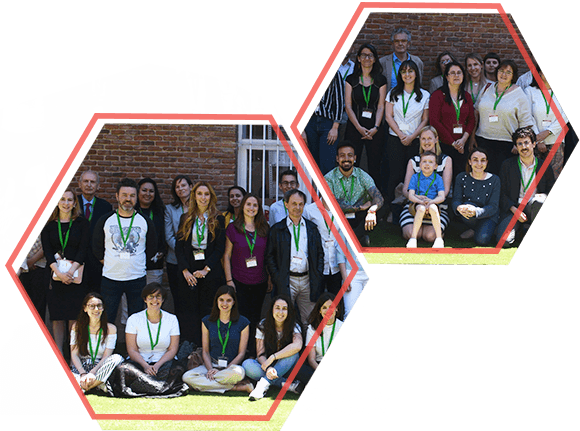Patients + Community:
Pyruvate Kinase Deficiency
Resources

Pyruvate Kinase Deficiency is a rare blood disorder characterized by excessive rupture of red blood cells; resulting in frequent, chronic anemia that may be life-threatening for patients with the severe form of the disease.
FAQs about Rocket’s Gene Therapy Approach to PKD
PKD is a rare, inherited blood disorder. PKD is caused by a defect in the PKLR gene which is found in red blood cells (RBCs). RBCs are responsible for carrying oxygen to the rest of the body. The PKLR gene in RBCs produces a protein (enzyme) called pyruvate kinase (PK), which is necessary for producing energy in RBCs and helps keep RBCs intact. When the PKLR gene has a defect, RBCs are limited in their ability to produce energy and stay intact because they lack the PK enzyme. Without the PK enzyme, RBCs break down faster than the body can make them. As a result, patients with PKD frequently have anemia, chronic fatigue, yellowing of the skin and eyes (jaundice) and large spleens.
Blood stem cells are first collected from a patient. These stem cells are then genetically modified in a laboratory to introduce a correct copy of the PKLR gene using a virus that has been changed so that the virus cannot grow, spread or cause an infection. The patient is then given a type of chemotherapy medication called busulfan to remove existing bone marrow cells to make room for the genetically modified stem cells (this is also known as conditioning therapy). After receiving busulfan, the patient is given an intravenous infusion of the genetically modified blood stem cells, similar to having a transfusion. These genetically modified stem cells are expected to return to the bone marrow and to make new blood cells, including new RBCs with a functioning PK enzyme. Having a functioning PK enzyme is expected to prevent destruction of RBCs and as a result, correct anemia and reduce or prevent the need for blood transfusions in patients.
Patients who:
- Have a PKD diagnosis with a confirmed PKLR mutation;
- Have severe, transfusion-dependent anemia after removal of the spleen;
- Are not receiving other experimental therapies; and
- Have no evidence of severe organ damage.
The clinical trial will initially enroll adults (ages 18-44). Once safety in adults has been established, the clinical trial will next enroll older pediatric patients (ages 12-17). Similarly, once safety in older pediatric patients has been demonstrated, then younger pediatric patients (ages 8-11) will be enrolled.
Before patients join the clinical trial, they will have to undergo several medical tests at the study center to determine whether they are eligible to join the trial. Following confirmation that a patient meets the eligibility criteria for the trial, participating in the clinical trial will involve:
- Stem Cell Collection:
A patient will receive medications over several days to cause stem cells to enter the blood from the bone marrow. These stem cells have the potential to make different blood cells in the body for the remainder of a patient’s life. The stem cells will be collected from the body through a catheter temporarily placed in a vein. This procedure is called apheresis. - Infusion of Genetically Modified Stem Cells (the Investigational Gene Therapy):
A patient’s stem cells will be genetically modified in a laboratory to introduce the correct copy of the PKLR. Before receiving the new cells, the patient will receive a chemotherapy medication called busulfan to remove the existing bone marrow cells to make room for the genetically modified cells. The patient will then receive an intravenous infusion of the genetically modified cells through the catheter, similar to having a transfusion. - Follow-up after Administration of the Investigational Gene Therapy:
Patients will need to return for follow-up visits, including blood and bone marrow tests, over the next 2 years. In addition, patients may expect to have long-term follow-ups with their home physician approximately 1-2 times per year for another 13 years.
- Lucile Packard Children’s Hospital Stanford, California, USA
- Hospital Infantil Universitario Niño Jesús, Madrid, Spain
- Hospital Universitario Fundación Jiménez Díaz, Madrid, Spain
Financial support, including travel arrangements and housing accommodations for patients and a family member, both for the treatment and follow-up visits, will be provided. This will also include assistance with passports, medical visas and translation services for patients and families if these are needed.
To learn more about the PKD gene therapy clinical trial email:
PKDclinicaltrial@rocketpharma.com
